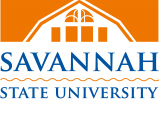|
Required Materials: |
|
RECOMMENDED TEXT:
Miller, S., Fahy, D., & ESConet Team. (2009). Can science communication workshops train scientists for reflexive public engagement? The ESConet experience. Science Communication, 31(1), 116-126.
https://ir.stonybrook.edu/xmlui/bitstream/handle/11401/8175/esconetworkshopsmillerucl.pdf?sequence=1
Peters, H. P. (2013). Gap between science and media revisited: Scientists as public communicators. Proceedings of the National Academy of Sciences, 110(supplement_3), 14102-14109: https://doi.org/10.1073/pnas.121274511
Varner, J. (2014). Scientific outreach: toward effective public engagement with biological science. BioScience, 64(4), 333-340.
https://search.ebscohost.com/login.aspx?direct=true&AuthType=ip,shib&db=a9h&AN=95607175&site=eds-live&scope=site&custid=sav1
ADDITIONAL ONLINE RESOURCES:
Research presentation style: https://owl.purdue.edu/owl/purdue_owl.html
GALILEO: http://eds.b.ebscohost.com/eds/search/basic?vid=1&sid=d9a16d68-721d-4d6f-8da5-01889fdcbf56%40sessionmgr120
Google Scholar: https://scholar.google.com/
Trustworthy news sources: http://www.npr.org/sections/alltechconsidered/2016/12/05/503581220/fake-or-real-how-to-self-check-the-news-and-get-the-facts
NPR: http://www.npr.org/
BBC: http://www.bbc.com/news
AP News Wire: https://www.apnews.com/
|
|
Technical Requirements: |
|
1. Demonstrate an understanding and be able to apply the principles and laws of freedom of speech and press in the United State of America, as well as receive instruction in and understand the range of systems of freedom of expression around the world, including the right to dissent, to monitor and criticize power, and to assemble and petition for the redress of grievances (First Amendment and Freedom of Expression);
2. Demonstrate an understanding of the history and role of professionals and institutions in shaping their chosen major (History and Roles);
3. Demonstrate an understanding of gender, race, ethnicity, sexual orientation and, as appropriate, other forms of diversity in domestic society in relation to their chosen major (Domestic Diversity);
4. Demonstrate an understanding of the diversity of peoples and cultures and of the significance and impact of their chosen major in a global society (Global Diversity);
5. Understand concepts and apply theories in the use and presentation of images and information (Theories, Application in the Presentation of Images & Information);
6. Demonstrate an understanding of professional ethical principles and work ethically in pursuit of truth, accuracy, fairness and diversity (Ethical Principles);
7. Demonstrate the ability to think critically, creatively and independently
(Critical, Creative & Independent Thinking);
8. Conduct research and evaluate information by methods appropriate to the professions in which they work (Research and Evaluation of Information);
9. Write correctly and clearly in forms and styles appropriate for the professions, audiences and purposes they serve (Written Communication);
10. Critically evaluate their own work and that of others for accuracy and fairness, clarity, appropriate style and grammatical corrections (Critical Evaluation of Own and Others’ Work);
11. Apply basic numerical and statistical concepts (Basic Numerical & Statistical Concepts);
12. Apply tools and technologies appropriate for communications professions in which they work (Use of Tools and Technology).
|
|
Pre-Requisite: |
|
(())
|
|
Link to View/Purchase Book: |
|
View Book with CRN
:
View Book with Course Info
|
|
Course Attributes: |
|
1. Study Abroad
|


